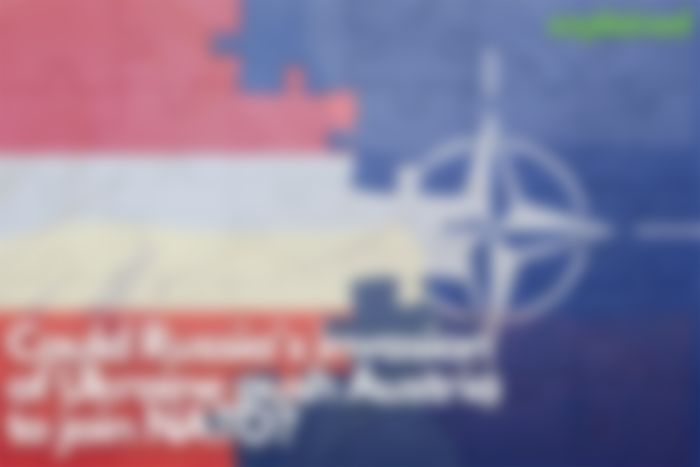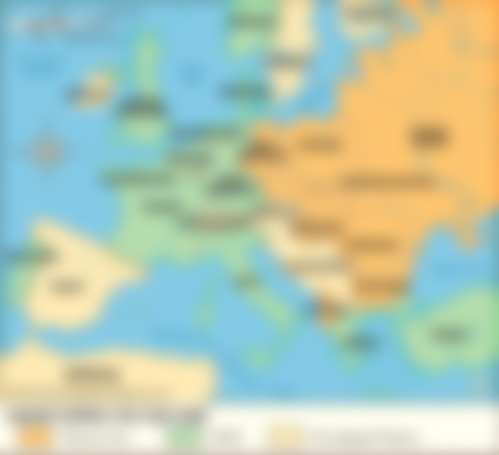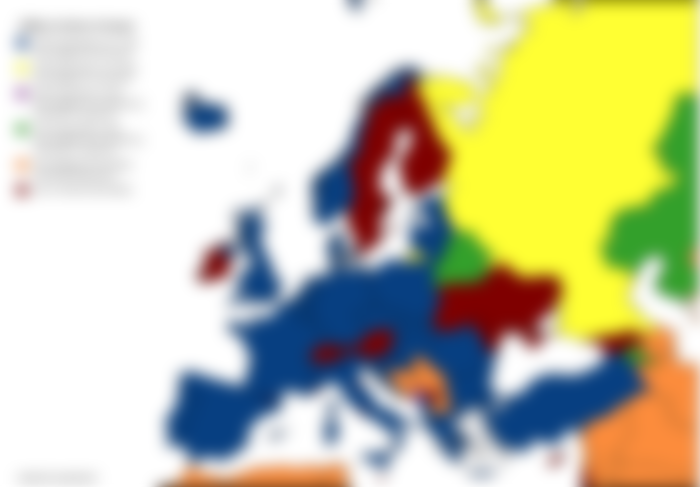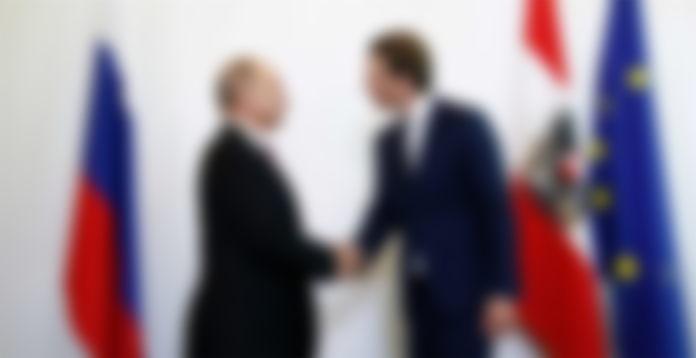Explained: Could Russia's invasion of Ukraine push Austria to join NATO?

Since Russia invaded Ukraine in late February, nato membership has become a hot topic of conversation. Despite boasting 30 current members, several EU countries have opted against signing up, including Finland, Sweden and the Republic of Ireland. We're going to take a look at the European exception to Austria and do our best to explain why Austria has never joined the alliance and the likelihood of them joining in the near future.
Firstly, it's necessary to run through a bit of Austrian history. After the second world war, Austria was under joint occupation of the western allies and the Soviet Union until 1955. The Soviet Union occupied the territory in the east and the United States, Britain and France in the west. However, in April 1955 the then chancellor flew to Moscow and negotiated the end of the occupation of Austria under a political agreement called the Moscow memorandum. In return for the withdrawal of soviet and western forces Austria would become a neutral and non-aligned nation and that's exactly what happened on 25th of October 1955 the last allied troops left Austrian soil and just a day later the country's parliament enacted the declaration of neutrality. Committing Austria to perpetual neutrality and preventing the country from joining military alliances going forward. Then, during the Cold War, Austria saw itself playing a special role as a Cold War neutral state.

The country played a crucial role as a mediator and bridge builder between the east and the west. Vienna was even the location of a number of important summit meetings and long-running arms control conferences. As well as the third host of important u.n agencies such as the International Atomic Energy Agency. However, after the Cold War, Austria's international position changed dramatically as it pivoted towards the west. In 1995 Austria joined the European Union and later adopted the euro in 1999 and in terms of security in 1995 Austria also joined nato's partnership for peace program, promoting bilateral cooperation between themselves and nato. Then in 1999 it joined nato's euro-atlantic partnership council, a forum for dialogue and consultation on political and security related issues in the euro-atlantic region. Nonetheless, while Austria might have more explicit political alliances with the west it maintained relatively cozy relations with Russia too, at least until recently.
In fact, Austria was the only major EU country not to expel Russian diplomats in the course of the retaliatory measures undertaken by the west in the aftermath of the poisoning case in Salisbury in March 2018. And the governing coalition in office from 2017 until 2019 had conspicuously friendly relations with Putin, in fact in 2018 the then chancellor and Putin had a meeting on average every three months with Austria being the first foreign country that Putin visited officially following his re-election and Austria's foreign minister at the time even invited Putin to her wedding. In fact, the Kurt's government only fell after a secretly filmed video showed their vice chancellor and leader of the FPO seeming to accept an offer of financing from a woman pretending to be the niece of a Russian oligarch. So it's safe to say that Austria has had close ties with Russia all the way up to the modern day.

Nonetheless, though, Austria has changed tax somewhat since Putin's invasion and that's in part because the pro-russian FPO have been replaced by the OVP. In fact when it comes to the war in Ukraine Austria says that it's militarily but not politically neutral and this time Austria has gone along with the rest of Europe when it comes to sanctions and Austrian airspace is now closed to Russian aircraft. Austria has also contributed to the non-lethal EU funding aiding Ukrainian forces including supplying helmets, medical equipment, blood and fuel and in response just last month Putin just declared Austria an enemy of the country marking a new low for russo-austrian relations. So with this newfound hawkishness on the rise, what are the chances of Austria actually joining nato today.
Well, it still looks very unlikely for the foreseeable future for two main reasons, the first of which is public opinion. Neutrality is deeply embedded in the Austrian psyche, and most Austrians are still wary of explicit military alliances. A poll conducted in March 2022 found that 76% of people favored Austria remaining neutral, versus just 18% who supported them joining nato. This is partly because, as a landlocked country surrounded by imposing mountains and other nato countries, Austria just doesn't feel threatened in the same way that the Finns and swedes apparently do.

The second reason though is the Austrian constitution, and that's because the declaration of neutrality is enshrined in the constitution. So repealing it would require a two-thirds majority in parliament, which doesn't currently exist. Austrian politicians might also be wary that nato recession would put them under political pressure to increase spending on their military at least a bit closer to nato's two percent target and that's a big ask because since it declared neutrality in 1955 Austrian military operations have been limited to peacekeeping missions in the Golan heights, Lebanon and the Balkans. And as such, defense spending currently amounts to just 0.74% of GDP. While the government currently plans to raise this number to 1% it would still be well short of the two percent target set for nato members. Let alone the 2.5 percent that military analysts believe would be required if they want to build up their military to the point where they could actually defend themselves in the event of an invasion. And that's because Austria's armed forces are currently little more than a natural disaster response unit.

Austria's military spending compared to GDP, CEIC
All in all then, it looks very unlikely that Austria will join nato anytime soon, with neutrality being a deeply ingrained part of the Austrian identity going all the way back to 1955. Nonetheless, with fellow EU members Sweden and Finland now very much on the path to nato recession they'll certainly be a renewed interest in the potential for Austrian membership and some Austrians argue that its long-standing neutrality only makes sense due to the specific and historical circumstances of the Cold War. And that now more than ever is time to change that stance and to be fair nato membership does have some supporters in Austria in particular on the center right and their position has been invigorated by Russia's war against Ukraine. Andreas Kohl, the grande of the conservative people's party and its presidential candidate in 2016 argued in a recent op-ed that the Ukrainian case showed how a neutral or non-aligned state stands alone when attacked and Austria will eventually have to choose between nato membership or cooperation with an EU army. Either way, thought, it seems Austria is taking this question more seriously than it has in decades.




